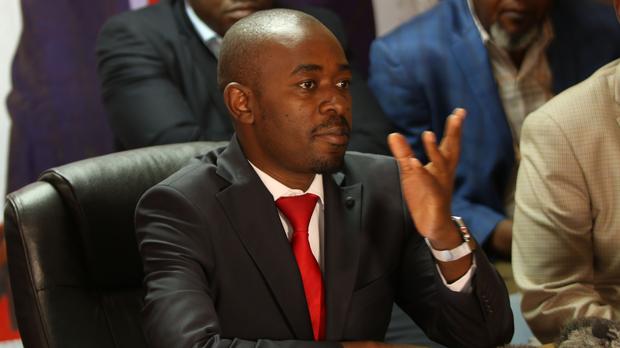As if overnight, coronavirus has caused competence in technology to rise to a new level of urgency for the legal profession.
In Australia, the Supreme Court of New South Wales said Thursday that it would take steps “to minimize the need for parties to come to the Court” through the use of online courts and telephone and video conferencing.
In Britain, emergency measures have been proposed to establish virtual courts to hear criminal and civil cases and allow more proceedings to be held via telephone and video.
Internationally, the 1,300-lawyer firm Faegre Drinker has closed all 22 of its offices around the world, saying its employees “are equipped with the required technology to work remotely and remain ready and available to assist clients.”
In the Pacific Northwest, the law firm David Wright Tremane has closed its offices in Seattle and Bellevue, Wash., and Portland, Ore., asking everyone in those offices to work remotely.
Suddenly, lawyers and other legal professionals are having to work from home. Suddenly, they are having to engage with clients and colleagues entirely remotely. Suddenly, they may have to navigate new forms of online courts.
Many firms are ready for this. But many are not.
No one can know how long this crisis will last. But if more firms are forced to close their offices, if more courts go online, if travel continues to be restricted, then there will be a new normal for law practice, and it will be one that relies more heavily than ever on technology and the cloud.
The firms that are best equipped for this challenge are those prepared in every way to work virtually. Their practice management systems are in the cloud. Their document management systems are in the cloud. They have systems in place for collaborating and conferencing online.
Most importantly, their employees and professional staff are trained in using these systems and have the equipment and hardware they need to work from anywhere. For them, closing an office is an inconvenience, but not an interruption.
I wish that were true for all firms. But we all know it is not.
Many firms are still limited to computer systems that operate only within an office. Many are not even that far along, still relying heavily on paper filing systems. They have virtually no infrastructure for their staffs to work offsite and virtually no clue of where to start.
Even if these firms were prepared, many of their lawyers are not. Many lawyers remain largely incompetent, or at least untrained, in technology. I meet these lawyers all the time — some who are proudly resistant to learning technology, others who simply have not taken the time.
There is no way to know the state of the profession’s preparedness for an extended crisis. According to the 2019 ABA Legal Technology Survey Report, 84% of law firms say they have some sort of remote-access software available for use by their employees. As you might expect, larger firms are more likely to have such systems, while just 66% of solos do.
But that same survey said that just over half of firms have any sort of document or records management system -– let alone a cloud-based system –- and just 37% of solos have such a system. Similarly, just over half have a case or practice management system, and just 35% of solos do.
Overall, according to the survey, just 58% of lawyers are using cloud-based systems in their law practices, and the cloud system they most commonly use is Google Docs.
These numbers suggest that a sizeable portion of the legal profession is poorly equipped to deal with an extended situation of working remotely and virtually.
Last year, I wrote about a Wolters Kluwer survey on “future-ready lawyers” that found, not surprisingly, that law firms that already leverage technology are better prepared to keep pace with an evolving legal market than those that are just beginning to use technology or that are not doing so at all.
Suddenly, that concept of a legal market that is “evolving” has morphed into one of a legal market where everything has changed overnight. The point of that survey holds true –- that firms that already leverage technology are better prepared if this becomes the new normal.
But what of the rest of the firms? What will become of them?
For firms that have lagged in their adoption of technology, for lawyers who have lagged in learning technology, the coming weeks and months could be an acid test. Sad to say, but if the situation persists, it could force the shutdown of some firms.
For everyone else, this should be a wake-up call. The need to be competent in technology is no longer an evolutionary concern. It is a matter of immediate survival.
 Robert Ambrogi is a Massachusetts lawyer and journalist who has been covering legal technology and the web for more than 20 years, primarily through his blog LawSites.com. Former editor-in-chief of several legal newspapers, he is a fellow of the College of Law Practice Management and an inaugural Fastcase 50 honoree. He can be reached by email at ambrogi@gmail.com, and you can follow him on Twitter (@BobAmbrogi).
Robert Ambrogi is a Massachusetts lawyer and journalist who has been covering legal technology and the web for more than 20 years, primarily through his blog LawSites.com. Former editor-in-chief of several legal newspapers, he is a fellow of the College of Law Practice Management and an inaugural Fastcase 50 honoree. He can be reached by email at ambrogi@gmail.com, and you can follow him on Twitter (@BobAmbrogi).
 Jordan Rothman is a partner of The Rothman Law Firm, a full-service New York and New Jersey law firm. He is also the founder of Student Debt Diaries, a website discussing how he paid off his student loans. You can reach Jordan through email at jordan@rothmanlawyer.com.
Jordan Rothman is a partner of The Rothman Law Firm, a full-service New York and New Jersey law firm. He is also the founder of Student Debt Diaries, a website discussing how he paid off his student loans. You can reach Jordan through email at jordan@rothmanlawyer.com.











 Tom Kulik is an Intellectual Property & Information Technology Partner at the Dallas-based law firm of
Tom Kulik is an Intellectual Property & Information Technology Partner at the Dallas-based law firm of 
 Kathryn Rubino is a Senior Editor at Above the Law, and host of
Kathryn Rubino is a Senior Editor at Above the Law, and host of 
